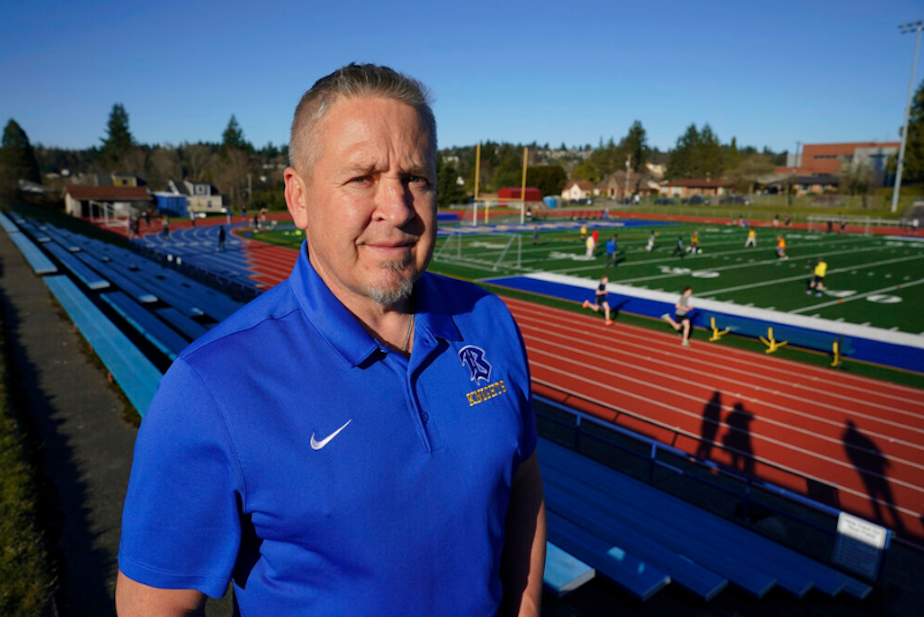What does Kennedy v. Bremerton SD mean for how schools handle religious speech?

What started out as one coach's post-game ritual at Bremerton High School wound its way to the U.S. Supreme Court this week.
To get the bigger picture behind Kennedy v. Bremerton School District, you have to go back to 2015.
It's a Friday night at Bremerton High School. Football players stand under the bright stadium lights, as parents and students cheer in the stands.
The final whistle blows.
Before any postgame huddle, one assistant football coach, Joe Kennedy, walks out and takes a knee at the 50-yard line. He starts praying.
Eventually, the situation spiraled into a national media spectacle and lawsuit. Now, that coach's prayer could have implications for how public schools handle religious speech by employees.
“There are religious leaders in Bremerton who actually filed a brief on behalf of the school district, saying that they didn’t endorse this prayer on the field and that it marginalized other groups," Crosscut reporter Venice Buhain told KUOW's Soundside.
“There were some NFL players who filed briefs in support of the coach, saying how important religion was to them. It’s definitely gone beyond the borders of Bremerton. A lot of folks are watching this case to see how religion is treated in schools.”
Soundside host Libby Denkmann spoke to Buhain about the case, and how the justices responded to the arguments presented by both sides during oral arguments.
Denkmann also spoke to Professor Clark Lombardi with the UW School of Law about the new questions the case raises on how to navigate religious and free speech rights for public employees.





